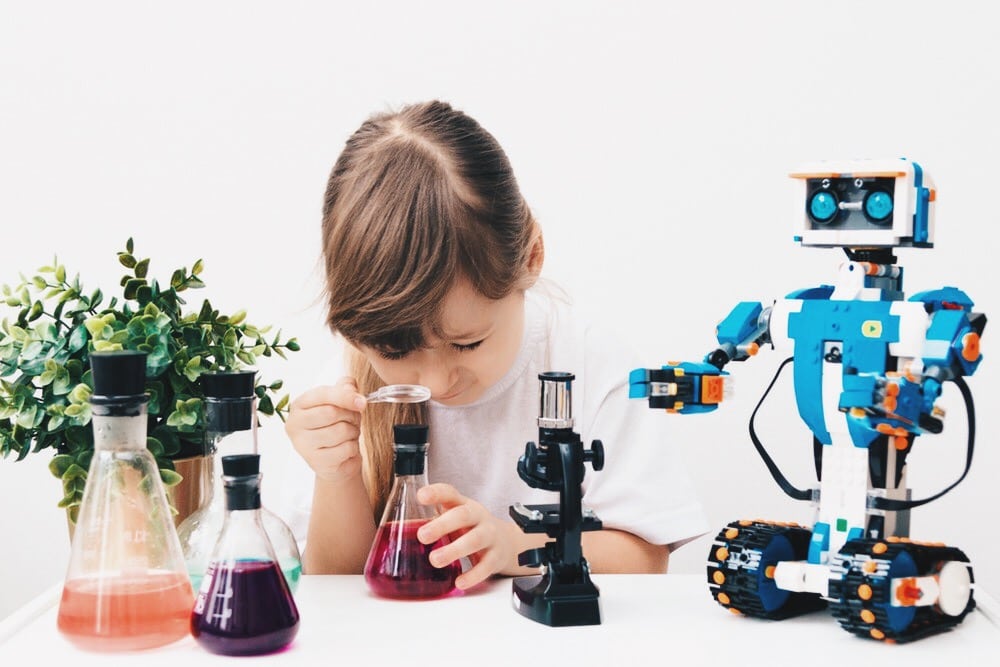Let’s imagine a conversation. Today Me sits down with Past Me for a little chat. Specifically, 2017 Me is sitting down to talk with 1997 Me and I am only allowed to talk about Artificial Intelligence. What do you think? Interesting subject? Here’s how the conversation might start.
“Okay,” 2017 Me says. “Google knows my location at any given moment.”
“Google?” 1997 Me asks.
“Oh right. It’s ‘97. Google registered its domain name in September of your year and officially starts up the next year.”
“Google? Really? What an odd name.”
“Right. It’s a hard word to remember.” Chuckle. “It’s a search site.”
“Search?” 1997 Me is trying to follow. “Like on the World Wide Web? Like Infoseek?”
“Yeah.” I smile. “We usually just call it the internet or online now. Oh, and Netscape is long gone.”
“Yeah? What about Internet Explorer?”
“Finally died, well, unless your computer is outdated. Now there’s Edge, Chrome, Firefox, and Safari, to name a few.”
“Huh.” 1997 Me chuckles, too. “Okay so Google. Like Ask Jeeves. Or Yahoo, I guess. So you tell a search engine where you are? Like it knows you’re in Utah.”
“So I tell a company that started as a search engine my location because I allow it through my smartphone.”
“Smart phone?”
It’s a long conversation with 1997 Me. It’s a bit mind blowing to really consider all of the ways our technology has changed since the days of searching on Excite or Lycos and getting online with an AOL CD.
I think that 1997 Me might be blown away by the lack of privacy in the life of 2017 Me. Should I tell 1997 Me that I have devices in my home that are always listening, waiting to hear the magic words?

HOW MUCH PRIVACY HAVE WE GIVEN UP FOR CONVENIENCE?
For Artificial Intelligence in our lives?
Sundar Pichai, Google’s CEO, reported this year in his Google IO keynote, that they have completely shifted from a mobile first to an AI-first world. They’re solving user problems, he says.
In order to do this, Google will gather massive amounts of data. About you. Things like the questions you ask your phone, or a Google Home advice, and the places that you visit. That doesn’t seem too scary to Today Me. Maybe 1997 Me would think that’s a bit much.
But AI will take things even further.
Gizmodo said AI can’t function if your device is secured. In fact, “your messages have to be unencrypted,” and programmers are trying to figure out how to create “searchable encryption.”
Am I willing to really throw my privacy out the window for the convenience of AI and the future? Would 2027 tell me, “really, it’s no big deal? You don’t care if Google can read all of your texts and emails because you have unimaginable convenience now!”
A few months ago, I attended a panel discussion: “What will AI do for you.” It began by asking each panel member, “Why does AI matter now?”
How would you answer? Why does it matter to you?
The panelists all agreed on three answers. One: it touches everyone’s lives. Two: we have the network technology to support it (machine research, cloud computing, and structured data). And three: it’s getting better, more human.
One panel member from Vivint Smart Home was interesting. Let’s call him Vivint Guy. I know: clever nickname.
Vivint Guy had a lot to say. He was excited about his company, which had announced their own AI assistant, Sky, five months prior. Big things were happening in Vivint Guy’s world so he wanted everyone to know. And he wanted to drive home a point that he felt made his company stand out in AI over the others; his company had an important value proposition to share: “we won’t exploit your privacy to give you a smart home.”
I couldn’t help but wonder what the fine print was on that statement. I didn’t want to call Vivint Guy a liar. I wanted to believe that these companies have our best interests at heart, including our privacy. But, is that even possible? I’ve obviously given up a lot of privacy already for conveniences. I would appall 1997 Me, sitting so modestly in her class in high school learning how to make a website on Geocities that included animated gifs running across the header, an album of cat pictures, and a rotating @ gif with which every visitor could email her. Nobody ever did. Imagine that. She titled the page, Nappy’s World. How did that not go viral?!
“Don’t worry,” I tell 1997 Me. “It’s worth it to give up a little privacy. I’m sharing my data for the better good, see? AI is only as good as what I’ve given it consent to gather. I’m a helper.”
Or at least, this is the narrative that I tell myself!
Can I tell you where the really big future of AI is going to be? This is my prediction, based on all I’ve learned and researched on AI. Whatever person or company develops technology that can make serendipitous events happen, they will make a lot of money.









